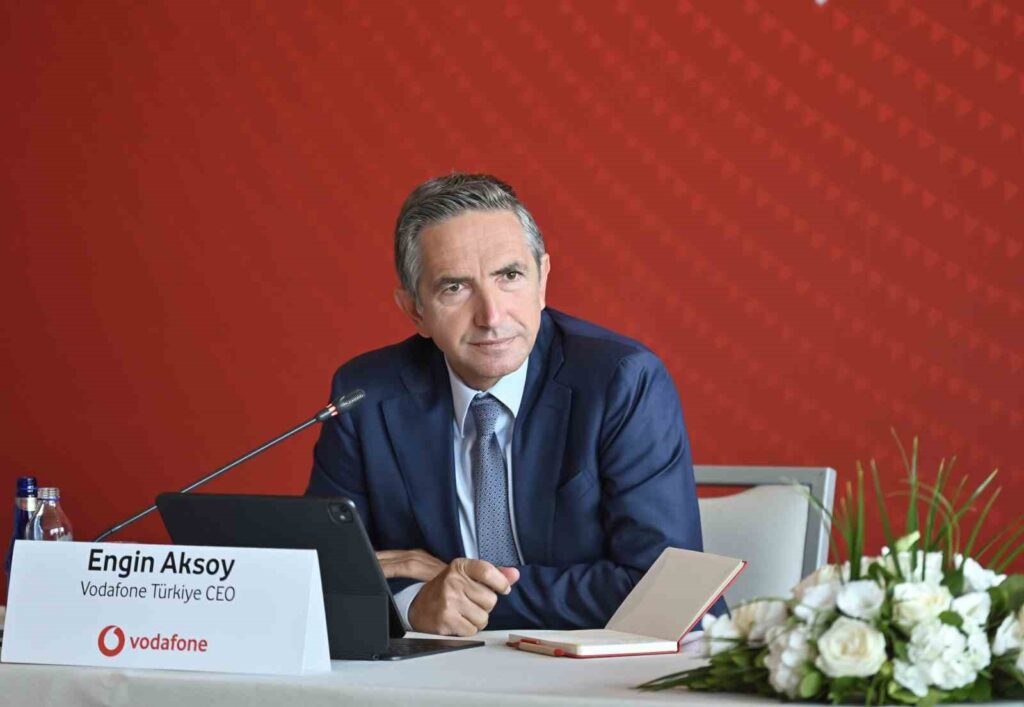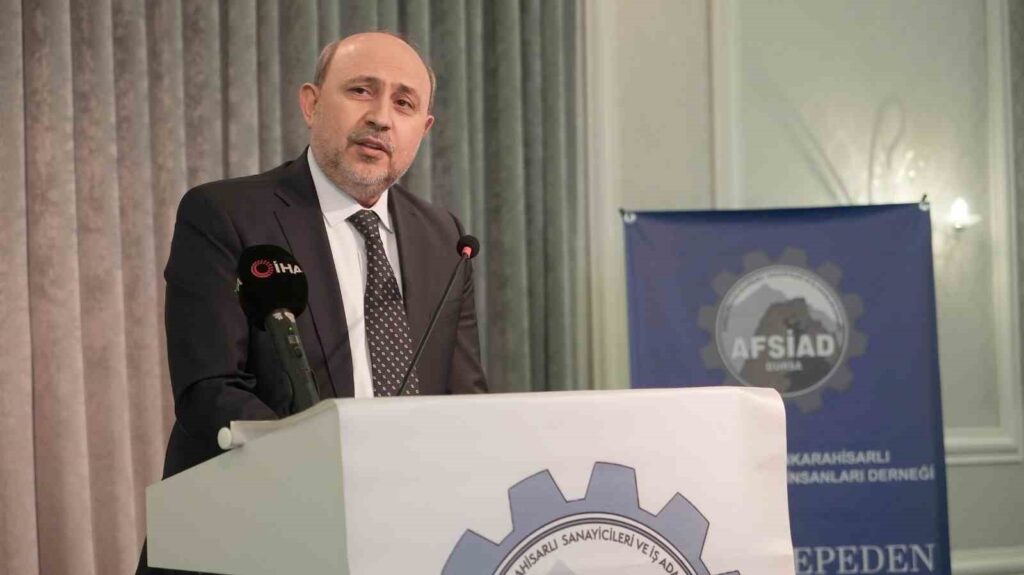Call for fiber reform from Vodafone
Vodafone has launched a new research focusing on the indispensable role of fiber infrastructure in activating the evolving digital ecosystem in Turkey. The company prepared a report titled ‘Fixed Broadband Policies on the Path to Digitalization’. Vodafone …

Vodafone has launched a new research focusing on the indispensable role of fiber infrastructure in activating the evolving digital ecosystem in Turkey. The company prepared a report titled ‘Fixed Broadband Policies on the Path to Digitalization’.
Vodafone has published a new report examining Turkey’s digitalization journey. The report, titled ‘Fixed Broadband Policies on the Path to Digitalization’, focuses on the essential role of fiber infrastructure in activating the evolving digital ecosystem in Turkey. According to the report, it is necessary to implement structural reforms such as separation to broaden fiber infrastructure in the country and to establish a common infrastructure company simultaneously with the separation. The report also emphasizes the need to consider the license extension process as an opportunity to implement the required reforms, to conduct the extension fairly, and to make the license extension process balanced, fair, and predictable without distinguishing between mobile and fixed.
The company’s new report was introduced at a press conference attended by Vodafone Turkey CEO Engin Aksoy and Vodafone Turkey Executive Board Vice President Hasan Süel.
Commenting on the issue, Engin Aksoy stated, “The issue of fiber infrastructure has become a problem for our country, and innovative and solution-oriented structural changes are needed to address this issue. Today, international neutral studies show that Turkey ranks only 50th in fiber development indices assessing around 90 countries. We believe that the next few years, when the fixed licenses will also be extended, represent a critical turning point for our country. It is extremely important that this process is conducted fairly and supports sectoral competition. We view this process as an opportunity in terms of our country’s digitalization mission. The report we prepared on ‘Fixed Broadband Policies on the Path to Digitalization’ serves as an important reference point for realizing our 2030 vision, which focuses on the indispensable role of fiber infrastructure in activating an evolving digital ecosystem.”
Engin Aksoy continued: “The digital world is advancing at a surprising speed, and we are falling behind. For Turkey to reach the same density as South Korea, it needs to increase its fiber line to 2 million kilometers and increase this fiber line by 17% each year compared to the previous year. The effects that will emerge from this situation could contribute 2.2% to Turkey’s GDP every year. In other words, if we continue in the current state, we will miss out on a value of 19 billion dollars each year. Data reveals a worrying gap in fiber coverage, FTTS rates, and average fixed broadband speeds that lag behind international examples. This gap is related to structural problems in the sector, particularly the vertically integrated structure on the fixed infrastructure side and the infrastructure sharing regulations. We believe that these problems arise from the current dysfunctional structure of the telecommunications market, hinder fair competition, and ultimately affect the quality of service we provide to our customers. Therefore, the realization of structural separation, the opening of the way for the establishment of a common infrastructure company simultaneously with the separation, and the evaluation of the license extension process as an opportunity for structural reforms to be conducted fairly are among our priorities.”
Vodafone Turkey Executive Board Vice President Hasan Süel stated: “We believe that the separation of the infrastructure owner and operator will establish competition and provide efficiency. Separation is a model widely accepted internationally, applied to increase fiber investments and competition. We believe that the widespread adoption of fiber infrastructure can only be achieved if infrastructure ownership is managed by a completely independent company through structural separation. The separation of infrastructure and superstructure services simplifies the business models of telecom operators. Streamlined management strategies through separation can lead to effective internal practices, management motivation, and ultimately increased overall efficiency. The existence of an infrastructure company that provides open and equal services to all operators will ensure the most efficient use of infrastructure, and the increasing competition in the retail market will accelerate the conversion of investment into subscriptions. We need to adopt this model, which has proven to work in other countries and unlocks the full potential of fiber infrastructure, providing faster and more affordable internet access for citizens and businesses. The separation model we propose is actually a model that government institutions have previously pointed out and is also applied in the electricity sector. We believe that structural separation is the most effective way to eliminate structural barriers in the sector and unlock the full potential of fiber infrastructure in our country.”
Süel emphasized the need for separation to be conducted simultaneously with the license extension and for infrastructure policy decisions to be made and tied to a timetable, stating, “It is important to establish and implement the broadband strategy outlined in the Development Plan. The pricing in the fixed service license extension processes should be determined fairly while considering balance, which will be a step for both the country’s treasury and the establishment of fair competition. We believe that a fair license process should occur within the framework of internationally accepted methods. For example, EBITDA plays an important role in determining the extension fee. How the license extension will be conducted in fixed infrastructure will set an example for other license processes ahead. Here, differing valuation methods and fees in mobile and fixed may lead to structural problems in the market. Therefore, the method chosen for the fixed extension will set a precedent for 5G and the tenders to be held in 2029. Here, we advocate the principle of fairness. This principle will ensure competition in the sector and serve the public interest.”
Hasan Süel listed the company’s policy recommendations as follows:
– “The way to prevent a de facto monopoly in Turkey in the next 15-20 years is structural separation and a common infrastructure company.
– The fixed infrastructure license extension process should be conducted according to internationally accepted standards, and a simultaneous separation process should be initiated.
– Common fiber infrastructure companies/initiatives should be established simultaneously to strengthen competition at both wholesale and retail levels in Turkey’s fixed broadband market.
– The fixed license extension, mobile extension, and 5G tender should be conducted under equal conditions. There should not be disproportionate differences between fixed and mobile extensions and the 5G tender. Both fixed and mobile license extensions should be conducted under fair and equal conditions. A tender structure that encourages investments under reasonable conditions for the 5G tender should be aimed at.”







